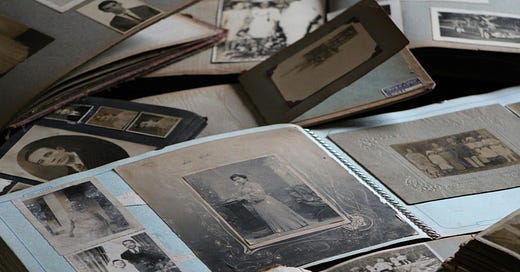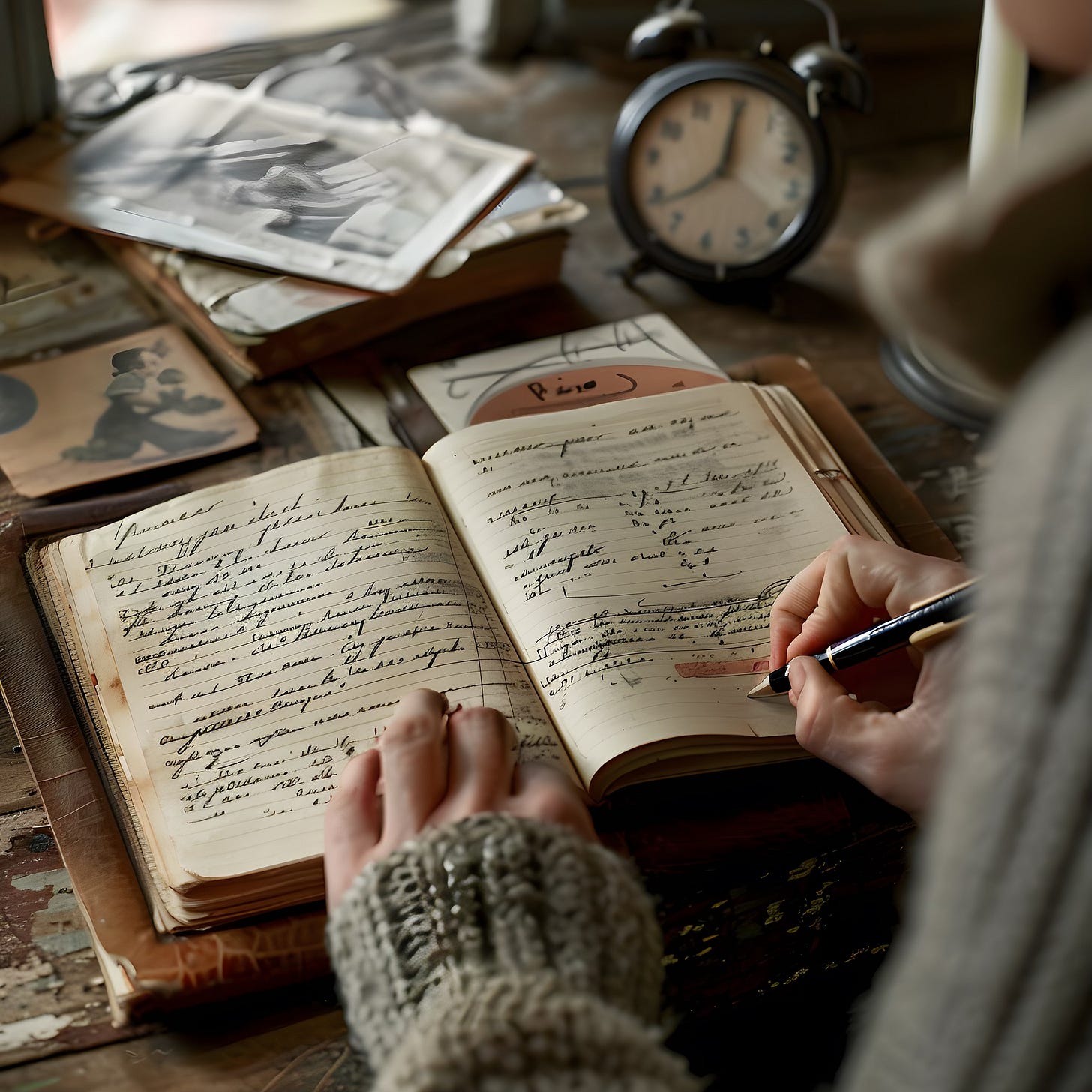It’s a simple question and one that many family historians, and likely quite a few psychologists, have pondered. Why are some of us so deeply passionate, even driven, to uncover the past and trace our origins?
If you’re reading this, I’m guessing you have at least some interest in family history. But what is it that pushes us, me and you, to keep digging, researching, and discovering? What fuels this pursuit to understand not just where we came from, but who we truly are?
We all arrive at family history from different starting points. No two stories are the same. Our backstories are as unique as our DNA. So what is it that keeps us going, even when we hit those infamous “brick walls”? Is it simple curiosity, a hobby that became an obsession, or something deeper? Maybe we’re each searching for that one missing puzzle piece in our own personal story.
I’m no psychologist, and there are certainly experts who can explain the human psyche far better than I can. But I do know why I keep researching my family’s past and I wonder, have you stopped to ask yourself what drives you?
There’s rarely just one reason. You might be driven by a mix of curiosity, love, grief, pride, or longing. But at the core, perhaps we’re not just learning about our ancestors, we’re learning about ourselves. By understanding their lives, their challenges, their choices, maybe we begin to make sense of our own.
Of course, documents and records only tell part of the story. They provide facts, dates, names, but they can’t capture the full emotional and human truth. Likewise, DNA testing can offer valuable insights into our ethnic origins, but it can’t tell us what makes us us. For that, we have to dig deeper.
Our identities are shaped by a blend of nature and nurture. We inherit traits, habits, and sometimes even talents through our genes. But just as important is what we learn from our surroundings, our families, and our life experiences. Only by understanding both our biological inheritance and our personal environment can we begin to form a clearer picture of who we are.
Some might say this is a lifelong journey, a continuous process of discovery from cradle to grave. And maybe that’s true. But understanding our own story, really knowing where we came from, can help us make sense of who we are today.
Our past doesn’t have to define our future, but understanding it gives us power. When we make sense of the past, we gain insight into our present. Tracing your family’s roots can connect you to the people who came before, people who lived, dreamed, struggled, overcame. Their stories become part of your story.
As we get older, the importance of family becomes clearer, not just the close-knit group we grew up with, but the extended network of great-aunts, second cousins, and ancestors we may never have met. These relatives, even in their absence, still have something to teach us. They remind us that we are part of a bigger tapestry, a legacy.
Researching your family tree can do more than connect names and dates. It can bring generations together, open up conversations that might have been lost, and even reunite distant relatives. It has the power to inspire the next generation of storytellers, historians, and seekers.
When someone asks me why I research my family tree, I often list a variety of reasons. But if I’m being honest, it comes down to something very simple:
It gives me a sense of identity.
My ancestors are long gone, but they helped shape who I am. Their lives, their choices, their struggles—all live on in me. I carry their legacy, just as those who come after me will carry mine.
“A people without the knowledge of their past history, origin and culture is like a tree without roots.” —Marcus Garvey
We don’t choose the family we’re born into. But by understanding them, where they came from and what they endured, we gain a deeper understanding of ourselves. Not just of the past, but of the path ahead.
So I ask you:
What drives you to research your family history?
I’d love to hear your story.





Hey Paul, love this question. It drives me forward in my genealogy pursuits. Here is a snippet from my memoir, a story of how I got started in family history. https://app.weare.xyz/public/cutting-family-tree-october-2024/articles/naem8hdjkrxz
Curiosity, love of history, a feeling of connection with the past, along with the need to keep alive the memories of those who came before me. I have always been interested in history in general, so when I received a hand drawn family tree in the early 90s, it was only natural I'd get drawn in. The more I found, the more I wanted to know. Seeing names on documents was such a thrill. Over the last decade, I've devoted much of my spare time to the pursuit.
Both my parents had traumatic childhoods...rather than allow the events to pull them down, it seemed to make them more determined to build a good life. And so they did. The more I learn about our ancestors, I understand now that my parents followed in their footsteps. Telling the stories I uncover in the historical record is so important to me - I don't want anyone to be forgotten.
I also admit that solving particularly tricky genealogical puzzles is very satisfying - plus, working through them helps keep my brain nimble! As a librarian, I also help patrons learn how to discover their ancestors and host a group of local family historians at monthly meetings.
In the end, it's really the connection to the past that keeps me going...Feeling rooted in the world in such a solid way in a world today where so much of life is conducted in digital spaces.